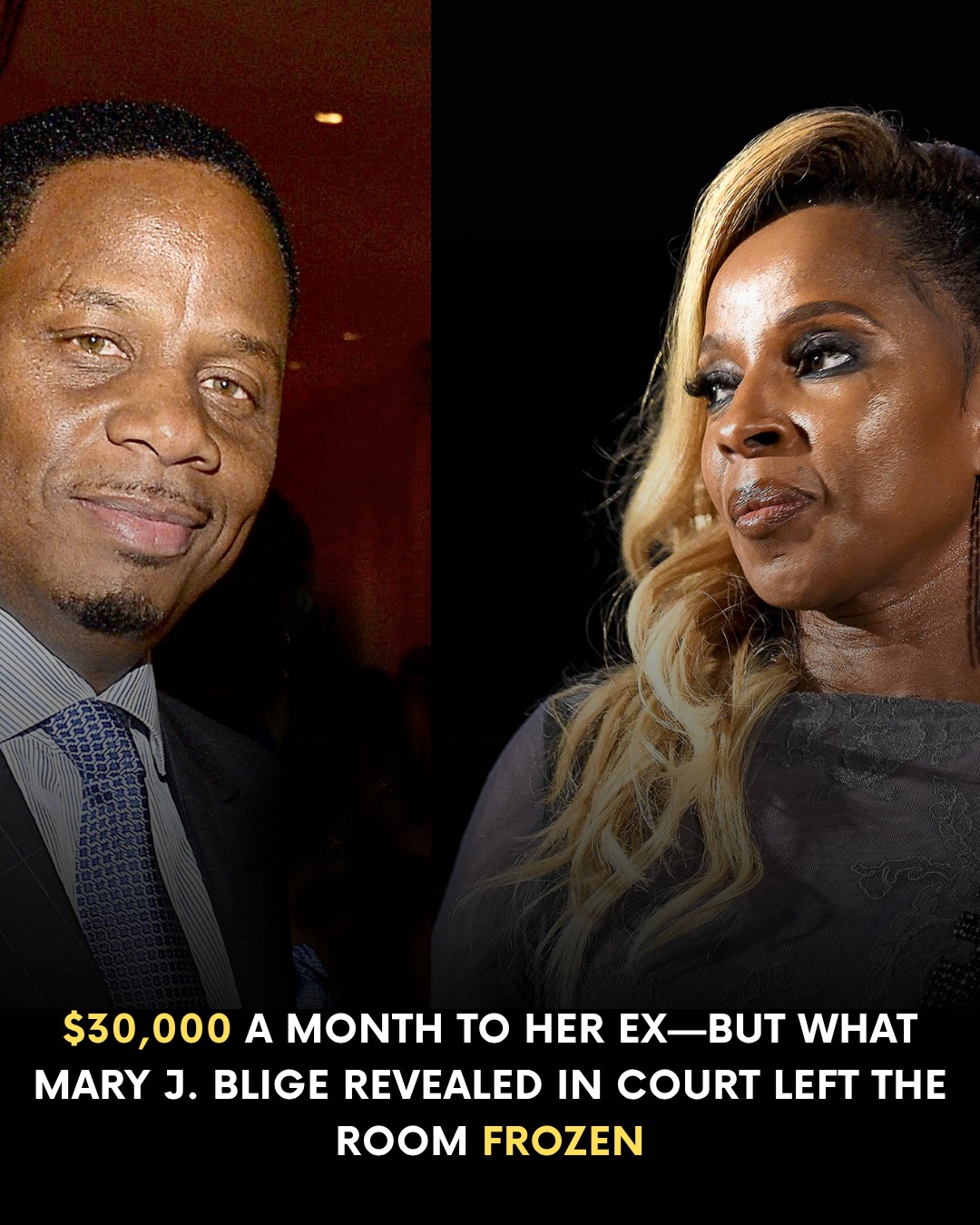
Mary J. Blige has always sung from a place of truth—raw, unfiltered, and often heartbreaking. But in a Los Angeles courtroom in 2017, it wasn’t a song that left everyone breathless. It was her voice, trembling but firm, as she revealed the emotional cost of a marriage that had quietly drained her long before the divorce papers were signed.
At the center of it all was a staggering number: $30,000 per month. That’s what Blige was ordered to pay her ex-husband and former manager, Kendu Isaacs, in temporary spousal support. For fans, the headline alone sparked outrage. How could the Queen of Hip-Hop Soul—who’d overcome poverty, abuse, and addiction—be paying a man who’d been accused of cheating, lying, and mismanaging her finances?
But what truly shocked everyone came not in the numbers, but in her testimony.
“I was the one working. I was the one supporting everything. And he still made me feel like I wasn’t enough,” Blige told the court, her voice cracking.
She described the emotional toll of a 12-year marriage that had left her feeling trapped. “He took my love, my trust, and my money—and gave it to someone else,” she said, referring to Isaacs’ alleged affair with a woman on her payroll. That woman, it was later revealed, had been traveling with Isaacs—on Mary’s dime.
Inside the courtroom, you could hear a pin drop. Even seasoned reporters said they’d never seen a celebrity speak with such naked vulnerability in a legal setting.
But Mary wasn’t there to play the victim. She was there to reclaim her power.
She admitted to feeling “humiliated” by the alimony order but said she was fighting not for revenge, but for clarity—for herself and other women who’d been made to feel small by the very people they loved the most.
“I’m not bitter,” she said. “I’m healing. And healing is messy.”
Her words became a quiet rallying cry, especially for women who had followed her career and knew how much she had already endured: childhood trauma, battles with addiction, and decades in an industry that often tried to shape her into something she wasn’t.
Fans flooded social media with support. One comment read, “She gave him everything—and now she’s paying for his betrayal. But she’s still standing. That’s power.” Another: “Mary’s tears broke me. But her strength rebuilt me.”
In the weeks that followed, Mary channeled her heartbreak into her music. Her 2017 album Strength of a Woman became not just a project, but a declaration. The lyrics weren’t metaphors—they were journal entries set to music. Songs like “Set Me Free” and “Love Yourself” weren’t just hits; they were therapeutic screams wrapped in melody.
Financially, the divorce was devastating. But spiritually? It became a resurrection.
Mary has since spoken about the pain of writing checks to the man who broke her heart. But she’s also said it made her stronger. “Money comes and goes,” she shared in an interview. “But peace? You earn that. And I earned mine.”
Today, Mary J. Blige is not only thriving—she’s glowing. With multiple business ventures, acclaimed performances, and continued recognition as a cultural icon, she’s living proof that rock bottom is sometimes the foundation for something unshakable.
She may have left that courtroom with less in the bank, but she walked out with more than most ever find: her voice, her truth, and a strength that left the world in awe.




